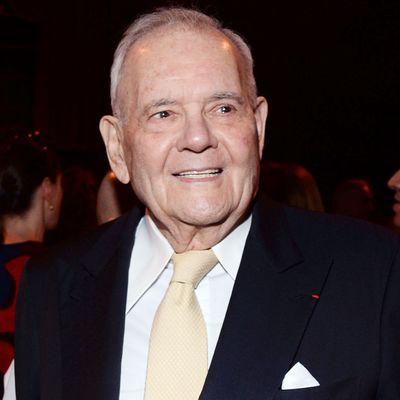
From its founding in 1963, the New York Review of Books has channeled the energies of what used to be called the New York Intellectuals into a sturdy biweekly package of a dozen or so 3,500-word doses of scrutiny. The originality of the paperÔÇÖs format shouldnÔÇÖt be underestimated. Yes, there was the Times Book Review, whose absence during the New York typographersÔÇÖ strike provided the occasion for the NYRBÔÇÖs launch, and, yes, in England there was the Times Literary Supplement, where the reviews were many and short and the reviewers were anonymous, but it was the New York Review that liberated the review-essay from the back pages of the Nation, HarperÔÇÖs, The New Yorker, Commentary, etc., and showed that a proper magazine could float on the energy of criticism, adorned with a stand-alone essay or two, perhaps a piece of reportage, a couple of poems, and of course, a combative letters page.
The first half of the 20th century was an age of little magazines, and the NYRBÔÇÖs crucial forerunner was Partisan Review, where founding co-editor Barbara Epstein had worked. (She was also the editor at Doubleday of The Diary of Anne Frank; she died in 2006.) Robert B. Silvers, who died this morning at 87, came up through The Paris Review, which heÔÇÖd started reading while serving in the Army in Paris. One day he turned up at the office and George Plimpton hired him to run the magazine so he could go home to New York. Plimpton wrote home about it:
Dear Mother and Daddy  A splendid Managing Editor has turned up  one Bob Silvers  a discharge from the Army, a good business man, perfectly willing to sacrifice a couple of years running the Review  in fact its his dream in life. Its a stroke of great luck for us. Hes intelligent, very interested, and is that new infusion of blood so necessary to combat apathy, laziness, and downright disinterest that seems to have struck everybody in the concern save your indefatigable son.
After a couple of years in Paris, SilversÔÇÖs next stop was HarperÔÇÖs Magazine, where he was the maestro behind the ÔÇ£Writing in AmericaÔÇØ supplement to the October 1959 issue. The section is famous for Elizabeth HardwickÔÇÖs essay ÔÇ£The Decline of Book ReviewingÔÇØ (ÔÇ£Sweet, bland commendations fall everywhere upon the scene; a universal, if somewhat lobotomized, accommodation reigns. A book is born into a puddle of treacle; the brine of hostile criticism is only a memoryÔÇØ), but the whole package is dazzling: Alfred Kazin on the fiction of the 1950s; Stanley Kunitz on the state of poetry; Budd Schulberg on writing for Hollywood; Kingsley Amis on book tours; C.P. Snow on U.S. versus U.K. writing; an anonymous letter to a young man about to go into publishing (obviously the work of Random House editor and NYRB co-founder Jason Epstein, IÔÇÖve always assumed); the list goes on.
Silvers and Barbara Epstein, abetted by Jason Epstein, Hardwick, and Robert Lowell, had the insight that something bigger than a little magazine could be run on the power of its contributors. When the NYRB was founded, The New Yorker didnÔÇÖt run a table of contents and its contributorsÔÇÖ names only appeared at the end of their stories. When you open an issue of the NYRB your eye goes to the list of contributors. What theyÔÇÖre writing about (as often as not, simply other writers) is of secondary concern. The fact that theyÔÇÖre so often the same names is the main reason you subscribe. ThatÔÇÖs not the way most magazines work.
Staying power eludes many editors. I donÔÇÖt have the book to hand, but somewhere in his letters New Yorker founder Harold Ross acknowledges that editing a magazine is a young personÔÇÖs pursuit and wonders what happens to a magazine editor when he gets old? Ross died at age 59, victim of the Parliaments he smoked by the carton. By all accounts, Silvers, who became a vegetarian because of the arguments he printed by the philosopher Peter Singer, maintained the drive he showed Plimpton in 1954 until the end, working seven days a week, often into the wee hours, stealing naps at the office. The new issue of the NYRB features a first-ever contribution from Vivian Gornick (on Kathleen Collins), and one from Julian Lucas (on Derek Walcott), an excellent critic who canÔÇÖt be older than 25. IÔÇÖve missed the regular appearances of Joan Didion and Frederick Crews in recent years, but a magazine creates its own future by constantly setting an example for the next generation to follow. Maintaining that example, not just a set of standards but a constantly regenerated idea of what a magazine can be ÔÇö as writers disappear for years to write books, sell out to Hollywood, or otherwise crack up ÔÇö is the job of editors. Silvers and Epstein devoted their lives to it, and they have few peers.

